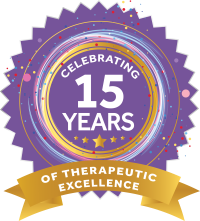
Working With Down Syndrome Students In A Teletherapy Setting
by Diana Martin, SLP
Amy (pseudonym) is a first grade student with Down Syndrome who loves dentists and doctors. When planning speech therapy instruction for Amy, I created customized game boards with doctor and dentist themes, found books on Get Epic! about doctors and dentists, song videos about visiting the dentist, and Ryan’s World videos that enabled me to address her personal interests while focusing on her goals. Spending a few sessions to gather observations about how Amy responded to various types of activities, topics, and routines was an important use of therapeutic minutes. As I got to know her, we incorporated a visual schedule that included icons that matched the activities for the day. Amy’s father shared that he was surprised that Amy bonded with me so quickly. He admitted that he had been highly skeptical that teletherapy would work or hold Amy’s attention. After 2 or 3 teletherapy sessions, Amy’s dad was pleased to report that when he told Amy that it was time for speech, she was ready and motivated to start her session.
Individuals with Down Syndrome have their own unique strengths
People with Down Syndrome tend to have reduced muscle tone, small stature, eyes that often slant upward, center palm creases, and mild to moderate cognitive delay. Although these characteristics are common, some individuals may not exhibit all or most of these characteristics. As a group, people with Down Syndrome are diverse in their gifts and abilities, explains the National Down Syndrome Society (NDSS) Down Syndrome Fact Sheet,For all students, including youngsters like Amy with Down Syndrome, good attendance and fun engaging sessions increase the likelihood that children will show goal progress. My experience providing speech therapy services to children with Down Syndrome supports NDSS’s assertion regarding diversity in ability. Overall, my students with Down Syndrome and their parents have responded very positively to therapy via telepractice. Productive therapy sessions require that the SLP strive to know their students, not just their goals. Delve into the child’s interests and use those interests to create sessions that are both structured and fun.
My 5 tips for creating productive sessions for students with mild to moderate cognitive delay
- Know your student’s topics of interest.
- Learn and/or try out activities of interest such as songs, videos, books, and games.
- Use a visual schedule to create structure and promote a motivating session pace.
- Over prepare. Make sure you have extra activities or links ready to go just in case what you have planned does not pique the student’s interest.
- Encourage parent/caregiver participation. Listen to the parent/caregiver. Communicate with the parent about the activities you want to try and ask for their input. When a parent does a wonderful job providing a prompt or cue, let them know. Foster a team atmosphere.
Become an E-Therapy teletherapist
We have immediate openings for speech therapists, school counselors and psychologists, and occupational and physical therapists. Sign up to become an e-therapist and we will contact you.
